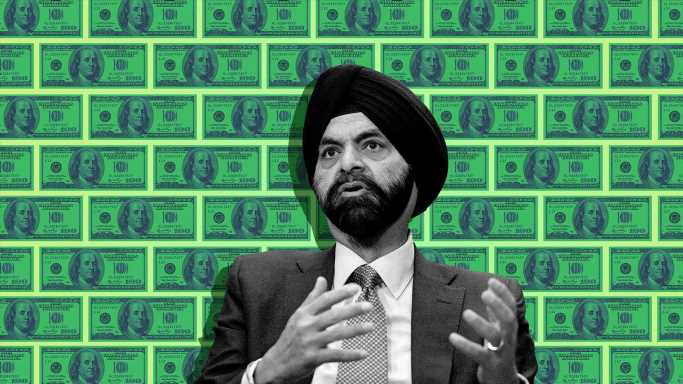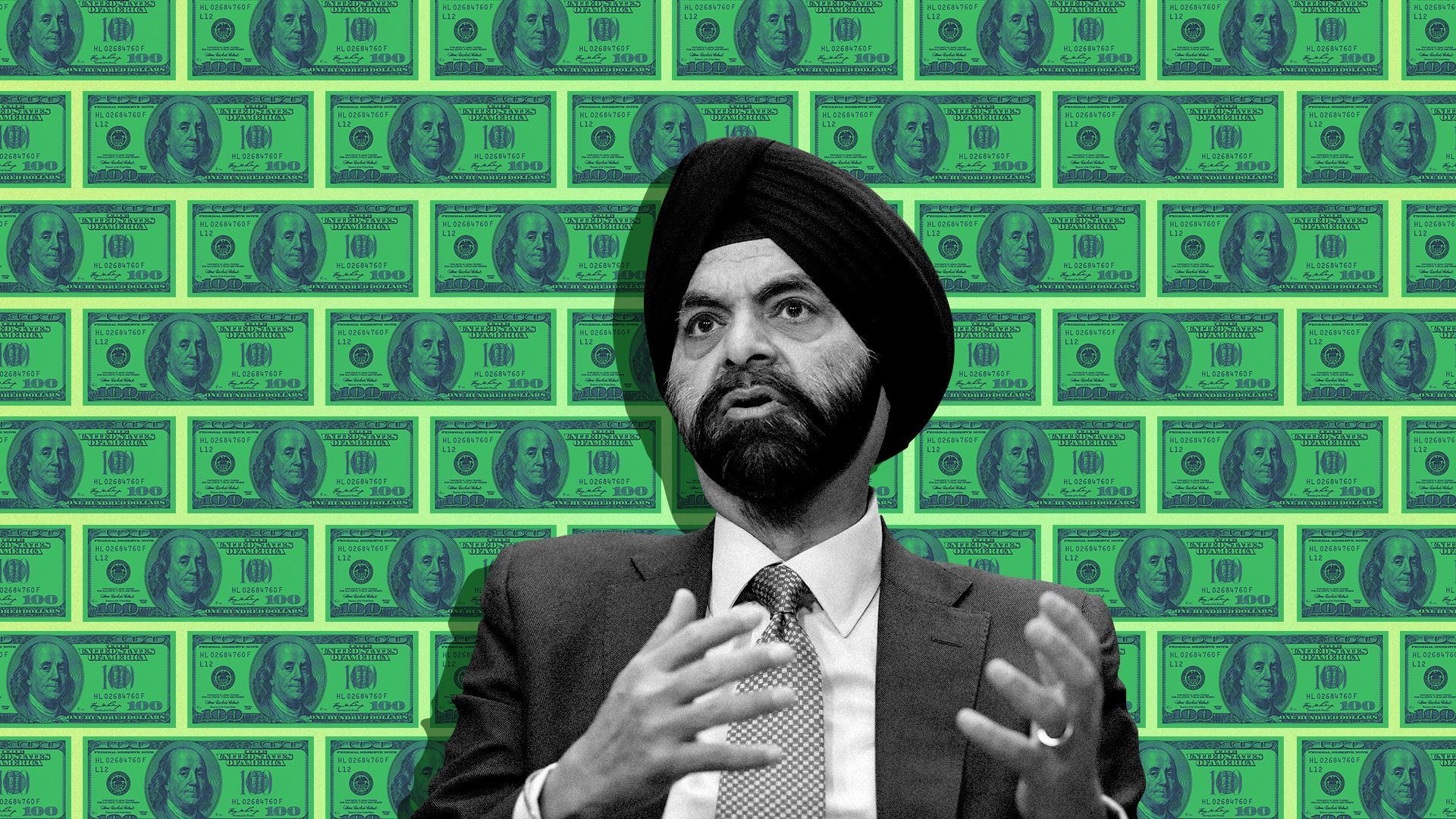Photo illustration: Aïda Amer/Axios. Photo: Hollie Adams/Bloomberg via Getty Images
Ajay Banga, President Biden’s nominee to lead the World Bank, wants the bank to focus on poverty alleviation and climate change — and warns that the world needs a massive investment from the private sector to adequately address both challenges.
Why it matters: The bank is under pressure from rich countries, and the Biden administration, to do more to fight climate change — but less-developed countries worry it will do so at the expense of its focus on health, education and poverty reduction.
What they're saying: Banga wants the bank to do both.
- “I think it's a fallacious argument that says, either-or,” Banga told Axios. “I have every intention of focusing the bank and its people on the idea that this is an intertwined challenge.”
- “For climate change, it's trillions of dollars a year. For inequality and poverty alleviation and development, it’s trillions a year,” he said. "You just have to get the private sector to be a constructive part of the solution.”
Driving the news: Banga, the former CEO of Mastercard, stands at the precipice of the bank's presidency.
- The window for presidential nominees among the World Bank's nearly 190 member countries closes today. Even if a new name is offered (Russia has hinted at a challenge), Treasury officials think Banga has at least 50% of the vote for president sewn up.
Between the lines: By tradition, the U.S. picks the World Bank president (and Europeans choose the head of the International Monetary Fund), but the candidate still needs to be formally approved by the shareholders.
- Banga, 63, who was born in India and became a U.S. citizen in 2007, is leaving nothing to chance.
- He is wrapping up arduous three-week, four-continent listening tour, having logged 39,546 miles and met with a total of 37 different governments, according to a Treasury official.
- He is now isolating in New Delhi after testing positive for COVID-19.
Flashback: The bank's current president, David Malpass, faced calls to resign in September after he appeared to question the effects of burning fossil fuels on climate change.
- Then in February, Malpass — who was former President Trump's choice for a five-year term that began in April 2019 — made a surprise announcement that he would step down early.
- That gave the Biden administration the vacancy they wanted.
The big picture: Treasury Secretary Janet Yellen wants the World Bank to be more aggressive in addressing climate change, as part of a broader set of proposed changes she laid out last October.
- At the far end of the spectrum are calls from NGOs for the bank to sacrifice its triple-A credit rating in the pursuit ofbigger loans to fund more projects.
- Banga, however, told Axios that the triple-A rating is important for the bank to keep.
- “Nobody wants the triple A rating to go away,” he said. “The only way that math works is with a triple A rating.”
What we’re watching: The Biden administration is trying to persuade African countries that the U.S. wants to be a partner for the long haul.
- The U.S. is trying to counter China’s influence in the region and offer an alternative path to economic growth and climate resilience.
- During her January trip to Africa, Yellen focused on the opportunity presented by the continent’s young population.
- Banga shares Yellen’s enthusiasm, with caution. “You meet these people, you see the ideas they're developing, they’re full of optimism, they’re full of energy and they're full of creativity,” he said.
- “But the other side of that is, they don't have jobs … that demographic dividend very quickly becomes a challenge.”
Source: Read Full Article

